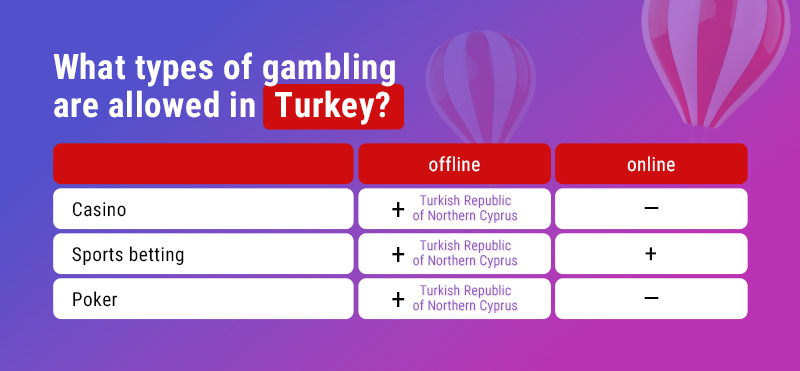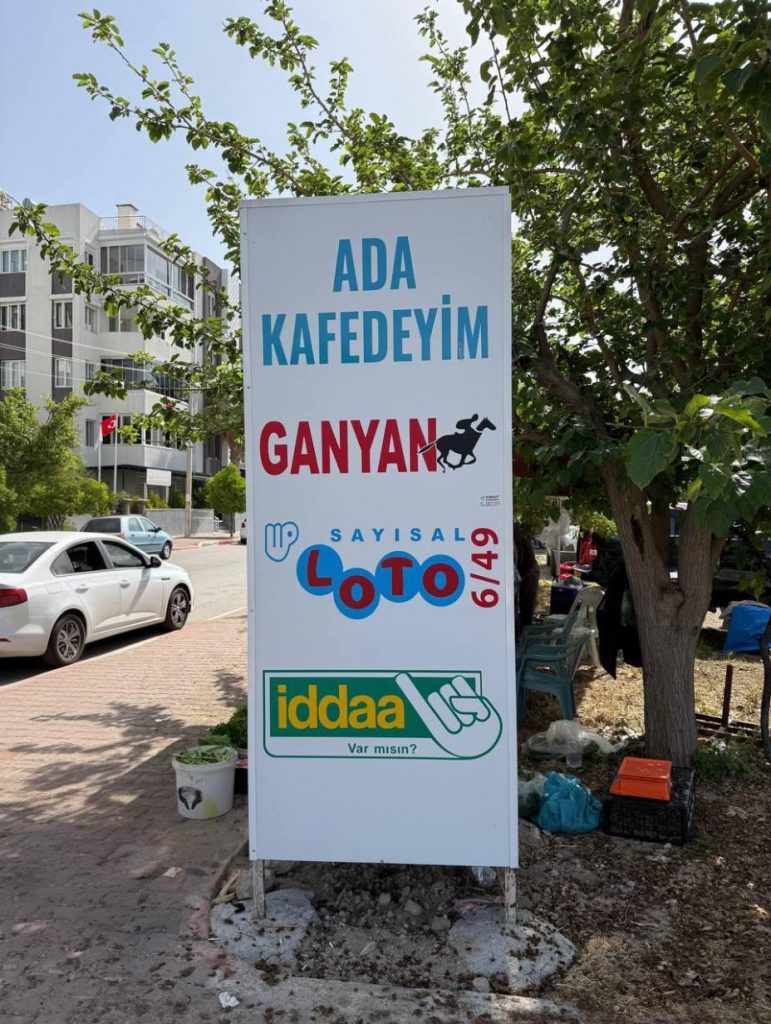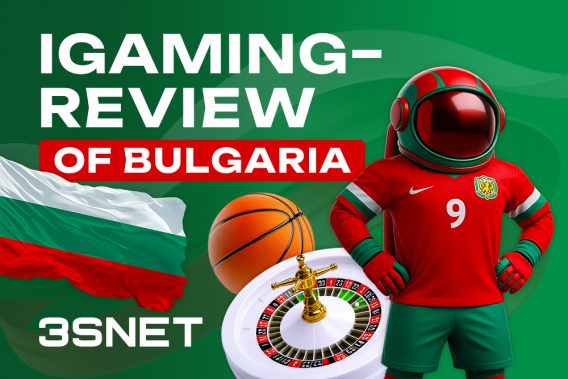
Last Updated: 29 november 2025
Although gambling is legally prohibited in Turkey, local players still actively participate in sports betting and online casinos. Our new overview on 3S.INFO explains how to drive traffic to online betting and gambling sites in Turkey.
Gambling in Turkey has deep historical roots that are closely intertwined with cultural traditions and legislative changes. Even during the Ottoman era, when gambling was officially banned due to Islamic norms, tavla (backgammon), poker, and dice remained popular. Despite the prohibition, underground gambling houses existed in all major cities.
What is the current regulation of online betting and gambling in Turkey?
Several federal laws govern casino and betting operations in Turkey.
Law No. 7258, “On the Regulation of Bets and Games of Chance in Football and Other Sports Competitions,” was enacted on April 29, 1959, and was most recently amended in 2023. This law requires all service providers and operators to obtain a license and strictly adhere to rules concerning data storage and protection of user privacy. These rules must be confirmed upon obtaining a license to ensure safe and transparent conditions for players.
Separate laws regulate penalties for illegal gambling, taxation of the gambling industry, and advertising rules, which will be discussed later.
What gambling is allowed in Turkey?

Several government bodies oversee the entire gambling sector in Turkey:
- The Sport Council of Turkey (Spor Toto Teşkilat Başkanlığı / STTB) regulates and controls betting on sports events.
- The National Lottery Directorate-General (Milli Piyango İdaresi Genel Müdürlüğü) manages and regulates lotteries.
- The Jockey Club of Turkey oversees horse racing betting and issues the corresponding licenses.
How to obtain a gambling license of Turkey?
The Sport Council of Turkey (Spor Toto Teşkilat Başkanlığı) issues licenses to organize betting activities, including sports betting and other bookmaking activities, through the IDDAA platform.
These licenses can be obtained by governmental institutions, appointed operators, and selected private operators, who can acquire contracts or franchises through tenders conducted by government authorities.
Companies wishing to participate in the tender process must be registered in Turkey, have capital exceeding 5 million TRY (approximately $129,000 USD), and demonstrate full transparency in their business practices.
Participation fees for tenders typically range from 2 to 5 million Turkish lira (TRY) (approximately $52,000 to $130,000 USD).
Several legitimate betting companies currently operate in Turkey, including:
- IDDAA, a state-owned betting platform.
- Privately owned companies licensed by Spor Toto: Nesine, Bilyoner, Misil, Tuttur, Oley, and Birebin. All of these brands are listed on the official department website.

According to the Blask Analytics Service report for April 2025, the top 10 gambling platforms in Turkey are:
- Jojobet;
- Casibom;
- GrandPashaBet;
- Nesine;
- HoliganBet;
- Matbet;
- Merit King;
- Bets10;
- Bettilt;
- Onwin.
Where are online casinos allowed in Turkey?
Unlike Turkey, where gambling is illegal, the Turkish Republic of Northern Cyprus* (TRNC) allows land-based and online casinos. The TRNC allows online and terrestrial casinos because it has a distinct status: it is not recognized internationally except by Turkey. Therefore, it has its own set of laws. Most casinos are concentrated in Girne (Kyrenia), Lefkoşa (Nicosia), and Famagusta. The five most famous land-based casinos in the TRNC are Merit Royal Casino, Elexus Casino Resort, Grand Pasha Casino, Cratos Premium Casino, and Venezia Casino. Up to 30% of Northern Cyprus’s budget is funded by revenue from casino operations.
* The Turkish Republic of Northern Cyprus (TRNC) is a de facto independent state located in the northern portion of the island of Cyprus, not part of Turkey. It was established in 1983 following a military conflict between Greek and Turkish Cypriots and is recognized only by Turkey. Nevertheless, Turkey actively supports the TRNC’s economy, and the country’s official currency is the Turkish lira. The country spans approximately 3,400 square kilometers and has a population of around 400,000.
How much money do casinos and bookmakers make in Turkey?
State-licensed operators in Turkey adhere to Law No. 7258 and pay taxes as follows:
- Sports betting: 5% of gross income.
- Horse racing betting: 7% of gross income.
- Lotteries: 10% of gross income.
According to Grand View Research data for 2024:
- Legal online betting generated revenues of approximately $921 million.
- Meanwhile, the gray market earned several times more, around $11 billion.
Projections indicate that the revenue from authorized gambling businesses in Turkey will reach $1.99 billion by 2030, reflecting a compound annual growth rate (CAGR) of 10.6% from 2025 to 2030. Sports betting is the most profitable segment, accounting for 55.6% of total revenue in 2024.
What kind of punishment can you receive in Turkey for illegal gambling and betting?
Law No. 5651, dated May 4, 2007, “On the Regulation of Publications on the Internet and the Combating of Crimes Committed Through Such Publications”.
Article 228 of the Turkish Criminal Code clearly defines illegal gambling activities. Any game format intended to earn money from users that is not regulated by law falls under this category.
Violations carry administrative and criminal liability for both users and operators.
Organizing illegal gambling can result in fines of up to 5 million TRY (~$175,000), seizure of earnings and equipment (e.g., servers, computers), and imprisonment of 1 to 5 years.
Participating in illegal gambling can result in fines ranging from 5,000 to 50,000 TRY (collected via mail or the online service e-Devlet), imprisonment of up to six months, and blocking of personal bank accounts.
Turkish authorities are actively combating illegal gambling sites and betting/gambling advertisements:
- In February 2025, famed Turkish singer Serdar Ortaç was sentenced to ten months in prison and fined for illegally promoting betting. In April 2025, actor Mehmet Ali Erbil faced a similar sentence of ten months and a fine of 1,000 liras for advertising illegal betting. At least ten other individuals are implicated in this criminal investigation.
- Previously, in 2021 and 2023, Turkey extradited influential figures Milad Hatami and rapper Tataloo (Amir Hossein Maghsoudloo) at Iran’s request. Both were charged with promoting an un-Islamic lifestyle, which prohibits gambling, and subsequently sentenced to death.
- On May 27, 2025, news broke of the arrest of Ahmed Karsli, owner of payment system Papara. He is suspected of facilitating payments to illegal betting and gaming websites through his service. Thirteen suspects are involved in the criminal proceedings, and property belonging to eight firms has been seized, including a villa, yacht, seven apartments, and 74 cars.
How are gambling and betting sites blocked in Turkey?
The authority responsible for blocking access to illegal gambling and betting websites in Turkey is the Telecommunications Authority of Turkey (Bilgi Teknolojileri ve İletişim Kurumu / BTK). Its operations are governed by various laws, including Law No. 5651 and Law No. 7258.
Standard methods for detecting and blocking offenders include DNS blocking (domain blockade), IP blocking (server addresses added to a blacklist), URL filtering (specific pages blocked), and deep packet inspection (DPI) filtering (entire internet traffic filtered, including VPNs and proxies).
According to Law No. 5651, all internet service providers in Turkey must block access to illegal online games and related content.
- The status of the site can be checked on the official BTK website via the link.
- Appeals against blocking can also be filed through the same portal.
According to local authorities, Turkish authorities blocked 233,000 illegal websites in 2024 and slightly over 168,000 sites in 2023. In 2025, prosecutors in Ankara received information on 375,000 websites suspected of engaging in illegal betting and gambling activities. The blocks extend not only to online casinos and bookmakers, but also to review sites, bonus sites, slot providers, and any platforms that mention gambling.
Rules for advertising casinos and bookmakers in Turkey
According to Law No. 7258, advertising gambling activities in the region is completely prohibited. Violators may face imprisonment of 1 to 3 years and a fine equivalent to 5,000 days’ worth of the minimum wage.
New Advertising Regulations in Turkey 2025-2026: Tightening Rules for Bloggers and Advertisers
In November 2025, the Ministry of Trade presented a draft of comprehensive new regulations that will soon impact all entities involved in gambling and betting advertising on social media—from major brands to local businesses. This comes as Turkey’s influencer marketing market is experiencing explosive growth (projected to rise from $81 million in 2025 to $165 million by 2030), alongside 58.5 million active social media users. These new rules will present a significant challenge for the entire Turkish advertising community, and it is crucial to prepare for them in advance.
- Mandatory Full Transparency: Every advertising post must feature clear and unambiguous labeling. For video and audio content, sponsorship must be verbally disclosed at the very beginning.
- The Era of Responsible AI: Mandatory disclosure of the use of filters, neural networks, or digital avatars. Advertising that creates a false impression that a real person or their digital double actually uses a product or service is now prohibited.
- Special Focus on Child Protection: A complete ban on targeted advertising directed at minors.
Who in Turkey visits betting and gambling websites?
The Republic of Turkey is located primarily in Western Asia, with a small portion (about 3%) in Southern Europe. With a population of nearly 90 million, it is the 18th most populous country in the world.
Urban dwellers account for 76.9% of the population. Major cities include Istanbul, a historic metropolis straddling Europe and Asia with a population of 15.8 million; Ankara, the capital with 5.7 million residents; Izmir, a port city with 4.4 million residents; Bursa, an automotive hub with 3.1 million residents; and Antalya, a tourist destination with 2.6 million residents.
Turkey is ethnically diverse. Turks constitute 75% of the population, Kurds 18%, and other ethnicities 7%.
Islam is practiced by 99.8% of residents.
The official language is Turkish, which is spoken by 90% of the population. Kurdish is spoken by 10-15%, and Arabic is common in southern regions.
The official currency is the Turkish lira (TRY).
According to Blask, 82 million Turkish citizens use the internet.
Who gambles in Turkey?
According to Gambling Turkey, gambling is mainly played by men (55-60%) between the ages of 25-45.
What sports are popular in Turkey?
- Association football reigns supreme among sports in Turkey. Iconic local clubs include Galatasaray, Fenerbahçe, and Beşiktaş, which boast massive nationwide fan bases. The top football league is the Super League (Süper Lig), which consists of 19 teams. Other popular tournaments include the Turkish Cup (Türkiye Kupası) and the Turkish Super Cup (Türkiye Süper Kupa), as well as European competitions such as the UEFA Champions League and the Europa League.
- Basketball is the second most popular sport. Turkish clubs Anadolu Efes and Fenerbahçe excel in the EuroLeague. Domestic competitions include the Basketbol Süper Ligi (BSL), the Turkish Cup, and the Türkiye Basketbol Ligi (TBL).
- Volleyball, particularly women’s volleyball, is also popular. Clubs such as Vakıfbank, Eczacıbaşı, and Fenerbahçe have achieved notable success in Europe. Prominent volleyball championships include the Sultanlar Ligi (women’s division), the Efeler Ligi (men’s division), and the Turkish Cups for men and women.
- Athletics: The annual Istanbul Marathon, held in November, is one of the world’s largest marathons. Starting in the Asian part of the city, runners cross the Bosphorus Bridge to finish in Europe. The event attracts approximately 20,000 athletes and offers a prize pool of roughly $1 million.
- For convenient scheduling, check the Sporting Events Calendar on 3S.INFO.
Turkey has preserved many unique ancient sports, some of which are still practiced today. Which local sports are popular among Turks?
- Oil Wrestling (Yağlı Güreş): This national sport is included on UNESCO’s heritage list. Wrestlers (pehlivan) wear leather pants (kispet) coated with olive oil. The objective is to throw or lift one’s opponent. The Kırkpınar tournament, the oldest continuously running sports event in the world, has taken place in Edirne since 1346.
- Cirit (Horsemen’s Warrior Game): Horseback riders throw wooden javelins at each other. Competitions are held during festivals in Erzurum, Kars, and Uşak.
- Falconry (Doğancılık): Originally from the Ottoman era, falcon hunting remains a prestigious pastime. Tournaments are occasionally held in Ankara and Konya. Owning a falcon, which can cost tens of thousands of dollars, signifies high status.
- Backgammon (Tavla): Ubiquitously played in Turkey, tavla competitions award prizes of up to 50,000 Turkish lira.
What payment methods are available in Turkey?
Local users appreciate services tailored to their needs, quick payments, and straightforward electronic wallets. However, data security and anonymity are the key factors for players.
Turkish players commonly use the following for deposits and withdrawals:
- Credit/debit cards (Visa, MasterCard)
- Bank transfers (Havale)
- International payment services (Jeton Wallet, ecoPayz, AstroPay)
- Local e-wallets (Papara, Mefete, Paybol)
- Regional payment services (Zeepay, Letim, Pyppl, Ininal, Troy)
- Cryptocurrency wallets (Bitcoin, Ethereum, USDT)
- Prepaid cards/vouchers (Paysafecard, Neosurf)
Authorities in Turkey have recently stepped up efforts against offshore gambling sites. In March 2025, a major operation resulted in the detention and arrest of approximately 80 individuals. Those arrested were allegedly involved with BankPozitif, the payment processors PayFix and Troy Bilişim, the broadcaster Flash TV, and 23 other companies. Consequently, the bank was placed under state control, and authorities seized over $188 million.
Statistics showing that PayFix processed 50 million transactions worth $114.66 million in just two months highlight indirect evidence of betting and gambling’s popularity in Turkey and the prevalence of illegal sites.
What betting and gambling creatives are used in Turkey?
- Like many other cultures, Turks aspire to a luxurious lifestyle. Even with modest incomes, they value status symbols such as gold jewelry, designer accessories, and premium gadgets, like Casio Edifice and Seiko watches. They also value luxury cars and travel. Spy services often offer creative bonuses, gifts, and promotions that convey feelings of privilege and celebration.
- Turks are passionate, impulsive, and emotional people who crave vivid experiences. Thus, gambling and betting ads should feature dynamic scenes, such as spinning reels, exploding jackpots, falling coins, applause, and prize unveilings, as well as fast-paced editing and bold colors to convey a sense of excitement.
- Despite Turkey’s secular character, many Turks—even nonreligious ones—avoid gambling and casinos during sacred periods like Ramadan and other Islamic holidays. Conversely, national celebrations such as Republic Day, Youth Day, and Children’s Day witness a sharp spike in gaming activity. Weekends, festivities, and communal revelry make people feel more relaxed and willing to take risks.
- Since most Turks are Muslim, it would be inappropriate to depict alcohol consumption, smoking, or nudity in creative content.
- Even in the context of gambling prohibition in Turkey, the aesthetic of premium casinos remains a powerful marketing tool. You can use photos and videos that evoke the atmosphere of VIP lounges, such as the sparkle of crystal chandeliers, stacks of chips, and close-up shots of delighted players. You can also use interior design elements from not only Northern Cyprus casinos (see the list at the beginning of the review!), but also from Monte Carlo or Las Vegas.
Which traffic sources are popular in Turkey?
By the beginning of 2025, Turkey had 77.3 million internet users, equating to an 88.3% nationwide penetration rate of digital services. The most commonly used networks were 4G and LTE.
According to StatCounter data for 2024–25, the most popular platforms in Turkey are:
- Social Networks: Facebook (39.28%), YouTube (13.53%), Instagram (33.01%), Pinterest (3.87%), and X (7.45%).
- Search Engines: Yandex (48.6%), Google (48.5%), Yahoo (1.22%), Bing (1.13%), and DuckDuckGo (0.51%).
- Device types: Mobile (71.18%), desktop (27.22%), tablet (1.59%).
- Most Popular Mobile Devices: Samsung (24.49%), Apple (22.25%), Xiaomi (18.38%), and Huawei (3.42%).
- Most Common Web Browsers: Google Chrome (74.73%), Safari (12.25%), Yandex (3.49%), and Opera (2.93%).
In May 2025, Minister of Transport and Infrastructure Abdulkadir Uraloglu reported that 58.5 million Turkish residents are active social media users. On average, people spend 7 hours and 13 minutes online daily, 2 hours and 43 minutes of which are spent on social networks. Instagram consumes the most time, averaging 32 hours and 36 minutes per month.
The top five social networks in Turkey by user count are:
| Position | Social network | Number of users (mln people) |
| 1 | Instagram* | 58,4 |
| 2 | YouTube | 57,5 |
| 3 | TikTok | 40,2 |
| 4 | Facebook* | 34,8 |
| 5 | X / Twitter | 19,7 |
* The social networks Instagram and Facebook have been blocked in Russia by court order.
Despite regulatory constraints, the Turkish market remains attractive to unauthorized gambling and betting operators. These operators actively adapt their products to local conditions, contributing to sustainable business growth and creating new opportunities.
FAQ
Is Gambling Legal in Turkey and How Does the Law Regulate It?
Gambling is prohibited by law in Turkey. Despite this ban, many local players actively participate in sports betting and online casinos. Law No. 7258 regulates betting and gambling, requiring operator licensing and strict controls for player security and privacy. Violations of the gambling ban lead to administrative and criminal liability, including fines and imprisonment.
Which Forms of Gambling are Permitted and Which Authorities Oversee Them?
Permitted activities include sports betting via the Spor Toto Teşkilat Başkanlığı (STTB), lotteries under the control of the Milli Piyango İdaresi, and horse race betting regulated by the Jockey Club of Turkey. Betting operators must obtain a state license; otherwise, their activities are considered illegal.
What Penalties are Stipulated for Organizing and Participating in Illegal Gambling?
Organizing illegal gambling operations can result in fines of up to 5 million Turkish Lira, asset confiscation, and prison sentences ranging from 1 to 5 years. Participants in such games face fines from 5,000 to 50,000 Lira and potential imprisonment of up to 6 months. Additional sanctions may include the blocking of bank accounts. Authorities are actively combating illegal websites and related advertising.
Where are Online Casinos Accessible for Turkish Players?
Online casinos are banned within Turkey itself but are permitted in the Turkish Republic of Northern Cyprus (TRNC), which has a separate status and operates under its own laws. This region hosts major land-based casinos and legal online casinos, which significantly contribute to the local economy.
What are the Regulations for Gambling Advertising in Turkey?
The advertising of gambling is completely prohibited under Law No. 7258. Violations can lead to prison sentences of 1 to 3 years and substantial fines. In 2025, controls over gambling advertising on social media are being strengthened, enforcing mandatory transparency and enhanced protection of minors from such advertisements.
Share it with your friends via favorite social media































